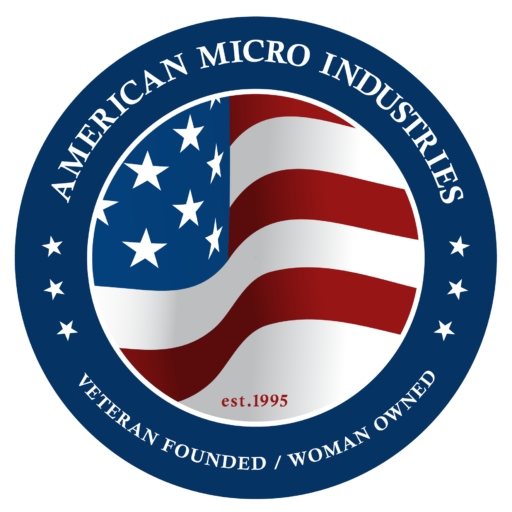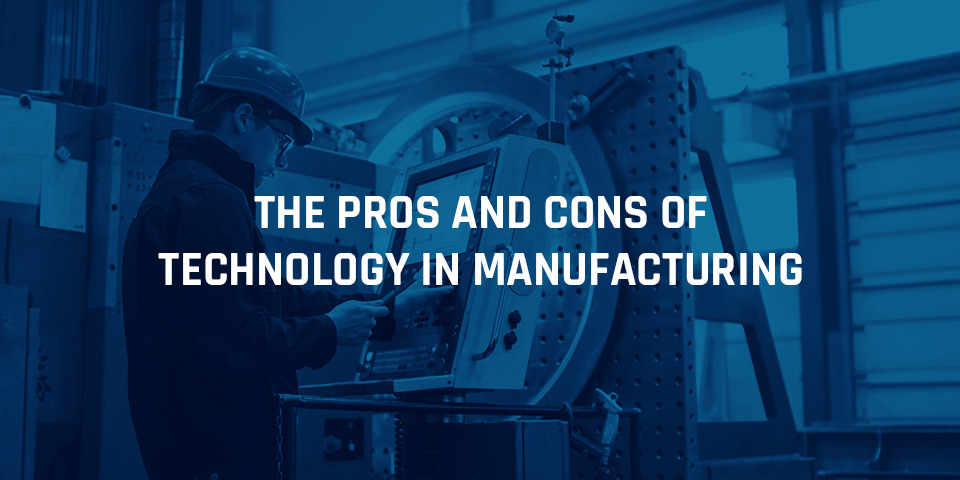


Integrating technology’s latest and greatest into manufacturing practices has opened many doors for certain industries, allowing companies to reach goals previously thought impossible. From creating individual parts to mass production schemes, technology is rapidly changing the way we produce everything from airplane parts to medicines.
Like all innovations, advanced technology has its downsides. Some industries are still working out how they can bring more advanced solutions into their operations. It all comes down to how the machinery is used.
But how do the pros and cons of advanced technology manufacturing measure up? Let’s start by explaining what we mean by advanced technology.
The term “advanced technology” refers to the most recent, innovative technology available at any given time. In manufacturing, advanced technology combines traditional practices with higher-tech solutions like artificial intelligence (AI) and Computer Numerical Control (CNC) machinery.
Types of advanced manufacturing include:
Advanced manufacturing technology is developing rapidly and spreading through various industries, although it is only used in a few industries at the moment. American Micro Industries offers CNC machining in addition to laser cutting and die-cutting, two precision techniques that use the same computer system as CNC machines.
Advanced manufacturing technology most benefits industries that already use high-tech solutions, as these industries already have the technological infrastructure in place. These industries include the following:
When used correctly, this kind of technology can streamline the manufacturing process from start to finish.
Advanced technology is versatile in manufacturing, especially when multiple different devices are used in combination with each other. Here are only a few of the many benefits manufacturers can see when using high-tech solutions:
Combining software, like an enterprise resource planning (ERP) database, with machinery can help reduce time spent in production. As a result, you’ll be able to handle greater volumes of work with less downtime.
While traditional manufacturing leans more towards mass production, advanced technology manufacturing makes it easier to keep up with custom orders. Because advanced machinery is computer-based, you can easily reprogram them any time you need a new part made.
By integrating computer systems and smart tech into your manufacturing process, you can easily pivot when problems arise. For example, if you are using traditional methods and learn of a cheaper and safer way to produce a certain product, you’re limited by what you have available.
But if you had something like a 3D printer, you could program it to create the parts you need for the new on-site method. Having access to programmable technology allows you to improve processes and create new solutions on a dime.
Using machinery reduces the number of manufacturing errors and ensures a more consistent product overall. The capabilities of advanced manufacturing technologies allow for an even more precise manufacturing process.
Because advanced technology provides such great flexibility, your operation will be more resilient to supply chain disruptions. You’ll be less reliant on other sources for parts, so you’ll be productive even when those parts are scarce on the market.
Some manufacturing jobs are more dangerous than others. Delegating those jobs to machines frees workers up to focus on other parts of the operation and prevents serious injuries. You can even use the machines to identify potential risks and develop appropriate safety measures.
With such great benefits, you might be convinced that advanced manufacturing is perfect. However, it’s just as important to consider the disadvantages, especially for industries that don’t regularly utilize technology.
Machines can take the roles of human workers without proper planning. This is especially true in the case of dangerous jobs, where it may be preferable to replace human workers with machines to create a safe work environment.
Advanced machinery is cost-effective in the long run, but getting started often requires a large investment. As long as you have the proper infrastructure in place, you should be able to quickly implement your advanced technology in a way that saves money.
Technical difficulties are inevitable, especially with frequently used machinery. To minimize this issue, make sure to inspect your machines on a regular basis. Knowing a few ways to troubleshoot basic problems can help you fix small issues ASAP and jump back into production.
If you or your staff don’t know how to operate your tech properly, you’ll likely run into periods of downtime waiting for someone else to fix it. You can prevent this issue by familiarizing yourself with the machinery before fully implementing it into your operation. Additionally, it’s a good practice to provide employees with manuals or guides to use the tech, so everyone is on the same page.
Certain industries benefit from technology manufacturing more than others. Mostly, it depends on how well a company can integrate this machinery into its already existing process. As technology advances and becomes more affordable and accessible, it’s will likely expand into other industries. At the moment, however, truly advanced tech is only applicable in certain situations.
For those industries that need advanced tech, the pros far outweigh the cons. Having technology is only part of the puzzle. Knowing what you’re doing with that technology is the key to maximizing production.
American Micro Industries knows advanced manufacturing technology. Whether you’re looking for a part, a specific material to make that part or both, we have everything you need to get to the next step in your process. Click here to learn more about our custom CNC machining and die-cutting services, or contact us for a free quote today.